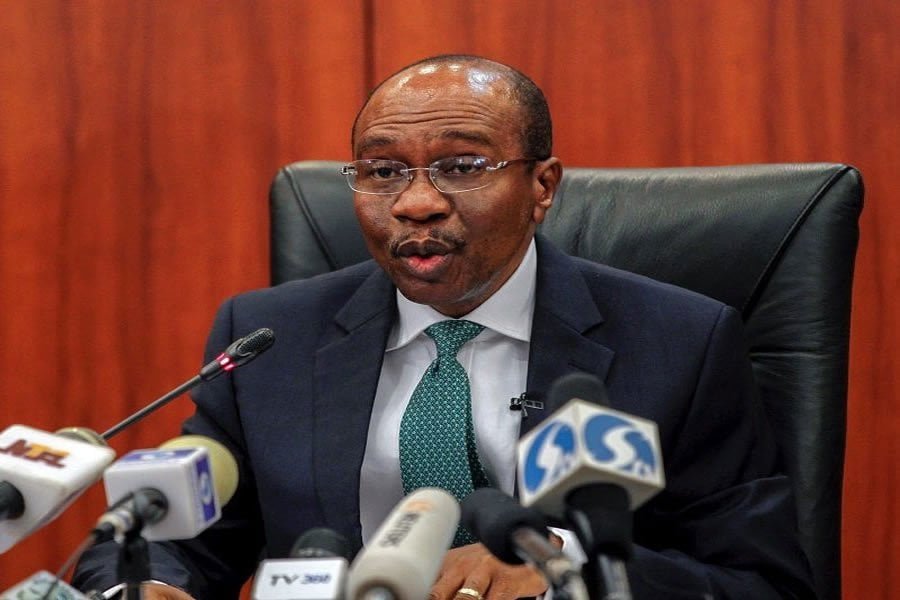The Monetary Policy Committee (MP) of the Central Bank of Nigeria (CBN), rising from its first meeting in 2022, retained the benchmark interest rate at 11.5 per cent to rein in inflation.
Announcing the decision at the end of the meeting, the CBN said holding the interest rate and other parameters constant had impacted the economy positively.
The apex bank said the committee voted to maintain the key lending rate at 11.5 per cent, with the asymmetric corridor of +100 and -700 basis points around the MPR and liquidity ratio at 30 per cent, and that part of majors to contain inflation would be revamping the commodities market and reducing money supply in the country.
The Monetary Policy Committee ended its two-day meeting on Tuesday with a unanimous vote to maintain the Monetary Policy Rate at 11.5 per cent, with the asymmetric corridor of +100bps/-700basis points. It also maintained the Cash Reserve Requirement at 27.5 per cent and liquidity ratio maintained at 30 per cent.
The MPC believes the higher inflation rate recorded in December may be transitory and perhaps reflective of stronger demand during the yuletide season, thus it opined that headline inflation rate may ease in the months ahead, especially with the significant interventions in the agriculture sector by both the CBN and the fiscal authorities.
With this renewed stance of the MPC, equity investors who were concerned that a higher interest-rate environment may trigger a bearish sell-off may have some sigh of relief.
Likewise, the government may be the biggest beneficiary of the sustained accommodative stance of the committee, as it suggests that the Debt Management Office (DMO) may be able to borrow for the government to finance the 2022 budget at perhaps similar interest as it did last year or slightly higher.
This indicates that the DMO may have to look more inward in financing the 2022 budget deficit, as higher interest rates in the global market may undermine appetite to ramp up foreign currency borrowings, except for low-cost bilateral loans from development finance institutions such as the World Bank and AfDB.
More so, the 10-year tax holiday on Withholding Tax and other forms of tax applicable to corporate bonds has expired, meaning that investors in such instruments would now be subjected to relevant taxes, another fiscal constraint that may lead investors to favour sovereign debt notes over corporate bonds, thus the risk is elevated that government borrowing may crowd-out private sector credit going forward.
Interest rate increase in advanced economies will not affect Nigeria – CBN
The CBN also announced that the increase of interest rates in advanced economies will not affect the Nigerian economy as the funds released in these economies through stimuluses did not flow into Nigeria.
CBN Governor, Godwin Emefiele, while addressing members of the press after the MPC communique reading, explained that the advanced economies are only raising interest rates because they were facing significant uptick in inflationary pressure, while Nigeria had been witnessing moderations except for December, 2021, which he said was temporary.
“Flows from the advanced economy did not move into the Nigerian economy, fortunately during the period of stimulus release by world central banks, we witnessed a reversal in our portfolio investments as they feel our yields are not as desirable,” Emefiele said.
Warns against borrowing from loan sharks
The CBN also stated that individuals in need of funds did not need to know anybody to collect loans from banks and should desist from borrowing from loan sharks.
Emefiele expressed displeasure at the way loan sharks handled customers who defaulted.
He said: “You don’t need to know anybody, just go into the portal, fill the form, send your data. If your data is correct you would be able to access loans.
“We have a large number of testimonies of people accessing loans without knowing anybody and they have benefited from them.
“If you go to a loan shark to borrow you would pay two or three times the amount in 90 days. When you refuse to pay they would seize your property; bicycle or television just to collet N200,000.”
He also stated that regulating them was a challenge since they were mostly in the rural areas and unregistered; and that moreover, the CBN was not a law enforcement agency like the police.
Dailytrust

